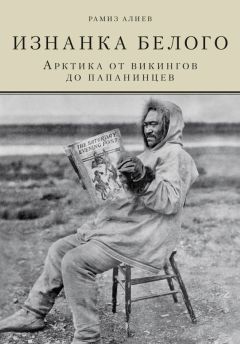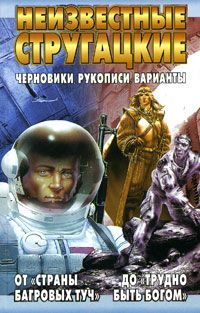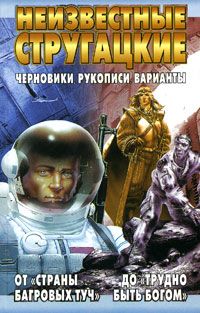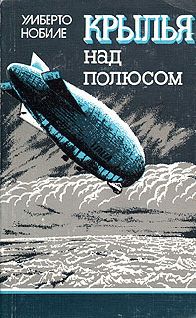156. Beattie, O., Geiger, J. Frozen in Time: the Fate of the Franklin Expedition. London: Bloomsbury, 2004. 288 p.
157. Beer, J. Ice Core Data on Climate and Cosmic Ray Changes // Workshop on Ion-Aerosol-Cloud interactions / CERN. Geneva, Switzerland, 2001. P. 3–11.
158. Beer, J., McCracken, K. Evidence for Solar Forcing: Some Selected Aspects // Climate and Weather of the Sun-Earth System (CAWSES): Selected Papers from the 2007 Kyoto Symposium / edited by T. Tsuda, R. Fujii, K. Shibata, and M. A. Geller. 2007. P. 201–216. http://www.terrapub.co.jp/onlineproceedings/ste/CAWSES2007/pdf/CAWSES_201.pdf.
159. Benthic Communities as Influenced by Nuclear Tasting and Radioactive Waste Disposal off Novaya Zemlya in the Russian Arctic / V. B. Pogrebov, S. I. Fokin, V. V. Galtsova, G. I. Ivanov // Marine Pollution Bulletin. 1997. Vol. 35. P. 333–339.
160. Bernard, J. F. Ice Conditions Round Wrangel Island. // The Geographical Journal. 1924. Vol. 63, № 5. P. 463–464.
161. Bosco, P., Stone, I. R. Black Feathers in Svalbard: the Alpini Expeditions, 1928 // Polar Record. 2004. Vol. 40 (215). P. 303–308.
162. Brandt, A. The Man Who Ate His Boots: the Tragic History of the Search for the Northwest Passage. New York: Alfred A. Knopp, 2010. XVI, 441 p.: ill.
163. Bryce, R. M. The Fake Peak Revisisted // DIO. 1997. Vol. 7, Nos. 2. P. 41–76.
164. Carroll, S. Crusades Against Frost: Frankenstein, Polar Ice, and Climate Change in 1818 // European Romantic Review. 2013. Vol. 24, № 2. P. 211–230.
165. Carter, C. «The Sea Fryseth Not»: Science and the Open Polar Sea in the Nineteenth Century // Earth Sciences History. 2013. Vol. 32, № 2. P. 235–251.
166. Cavell, J. Going Native in the North: Reconsidering British Attitudes during the Franklin Search, 1848–1859 // Polar Record. 2009. № 45 (232). P. 25–35.
167. Cavell, J. Publishing Sir John Franklin’s Fate: Cannibalism, Journalism, and the 1881 Edition of Leopold McClintock’s Voyage of the «Fox» in the Arctic Seas // Book History. 2013. № 16. P. 155–184.
168. Chafe, E. F. The Voyage of the Karluk, and Its Tragic Ending // The Geographical Journal. 1918. Vol. 51, № 5. P. 307–316.
169. Change of Diet of the Greenland Vikings Determined from Stable Carbon Isotope Analysis and 14C dating of their Bones / J. Arneborg, J. Heinemeier, N. Lynnerup, H. L. Nielsen, N. Rud, Б. E. Sveinbjörnsdóttir // Radiocarbon. 1999. Vol. 41, № 2. P. 157–168.
170. Climate and Atmospheric History of the Past 420,000 Years from the Vostok Ice Core, Antarctica / Petit, J. R. el al. // Nature. 1999. Vol. 399. P. 429.
171. Cookman, S. Ice Blink: The Tragic Fate of Sir John Franklin’s Lost Polar Expedition. John Wiley & Sons, 2000. 256 p.
172. Cyriax, R. J. Sir James Clark Ross and the Franklin Expedition // Polar Record. 1942. № 24. P. 528–540.
173. Cyriax, R. J. The Two Franklin Expedition Records Found in King William Island // The Mariner’s Mirror. 1958. Vol. 44. № 3. P. 179–189.
174. Cyriax, R. J., Jones, A. G. E. The Papers in the Possession of Harry Peglar, Captain of the Foretop, HMS Terror, 1845 // The Mariners Mirror. 1954. Vol. 40. № 3. P. 186–196.
175. Dick, L. Aboriginal-European Relations During the Great Age of North Polar Exploration // Polar Geography. 2002. Vol. 26, № 1. P. 66–86.
176. Dick, L. «Pibloktoq» (Arctic Hysteria): a Construction of European-Inuit Relations? // Arctic Anthropology. 1995. Vol. 32, № 2. P, 1–42.
177. Dickens, C. The Lost Arctic Voyagers // Household Words. 1854. 2 December.
178. Diubaldo, R. J. Stefansson and the Canadian Arctic. McGeel-Queen`s University Press, 1999. 274 p.
179. Diubaldo, R. J. Wrangling Over Wrangel Island // The Canadian Historical Review. 1967. Vol. XLVIII, № 3. P. 201–226.
180. Durey, M. Exploration at the Edge: Reassessing the Fate of Sir John Franklin’s Last Arctic Expedition. The Great Circle // Journal of the Australian Association for Maritime History. 2008. № 30 (2). P. 3–40.
181. Eddy, J. A. The Maunder Minimum // Science. New Series. 1976. 18 June. Vol. 192. № 4245. P. 1189–1202.
182. Euller, J. The Centenary of the Birth of Frederick A. Cook // Arctic. 1964. Vol. 17, № 4. P. 219–221.
183. Farrer, K. T. H. Lead and the Last Franklin expedition // Journal of Archaeological Science. 1993. № 20. P. 399–409.
184. Gibson, W. Sir John Franklin’s Last Voyage // Beaver 17. 1937. June. № 1, Out. 268. P. 44–75.
185. Gough, B. M. British-Russian Rivalry and the Search for the Northwest Passage in the early 19th Century // Polar Record. 1986. № 23(144). P. 301–317.
186. Grant, Sh. D. Why the St. Roch? Why the Northwest Passage? Why 1940? New Answers to Old Questions // Arctic. 1993. № 46. P. 82–87.
187. Grove, J. M., Battagel, A. Tax Records from Western Norway, as an Index of Little Ice Age Environmental and Economic Deterioration // Climatic Change. 1983. № 5. P. 265–282.
188. Gjertz, I., Mørkved, B. Norwegian Arctic Expansionism, Victoria Island (Russia) and the Bratvaag Expedition // Arctic. 1998. Vol. 51, № 4. P. 330–335.
189. Hall, C. F. Arctic Researches and Life among the Esquimaux: being the Narrative of an Expedition in Search of Sir John Franklin, in the Years 1860, 1861 and 1862. New York: Harper & Brothers Publishers, 1866. 615 p.
190. Haltia-Hovi, E., Saarinen, T., Kukkonen, M. A 2000-year Record of Solar Forcing on Yarved Lake Sediment in Eastern Finland // Quaternary Science Reviews. 2007. № 26. P. 678–689.
191. Harper, K. The Minik Affair: The Role of the American Museum of Natural History // Polar Geography. 2002. Vol. 26, № 1. P. 39–52.
192. Herschel, W. Observations Tending to Investigate the Nature of the Sun, in Order to Find the Causes or Symptoms of Its Variable Emission of Light and Heat; With Remarks on the Use That May Possibly Be Drawn from Solar Observations // Philosophical Transactions of the Royal Society of London. 1801. Vol. 91. P. 265–318.
193. Highly Variable Northern Hemisphere Temperatures Reconstructed from Low– and High-Resolution Proxy Data / A. Moberg, D. M. Sonechkin, K. Holmgren, N. M. Datsenko & Wibjorn Karlen // Nature. 2005. Vol. 433. P. 613–617.
194. Horowitz, B. Z. Polar Poisons: did Botulism Doom the Franklin Expedition? // Clinical Toxicology. 2003. Vol. 41. № 6. P. 841–847.
195. Houston, C. S. John Rae (1813–1893) // Arctic. 1987. № 40 (1). P. 78–79.
196. Huntington, P. A. M. Robert E. Peary and the Cape York Meteorites // Polar Geography. 2002. Vol. 26, № 1. P. 53–65.
197. Interdisciplinary Investigations of the End of the Norse Western Settlement in Greenland / L. K. Barlow, J. P. Sadler, A. E. J. Ogilvie, P. C. Buckland, T. Amorosi, J. H. Ingimundarson // Holocene. 1997. № 7. P. 489–499.
198. Jackson, C. I. Three Puzzles from Early Nineteenth Century Arctic Exploration // The Northern Mariner/Le marin du nord. 2007. Vol. XVII, № 3 (July). P. 1–17.
199. Jones, A. G. E. Sir James Clark Ross and the Voyage of the Enterprise and Investigator, 1848–49 // The Geographical Journal. 1971. Vol. 137, № 2. P. 165–179.
200. Jones, H. G. Ada Blackjack and the Wrangel Island Tragedy, 1921–1923 // Terrae Incognitae. 1999. Vol. 31. P. 91–102.
201. Karpoff, J. M. Public Versus Private Initiative in Arctic Exploration: The Effects of Incentives and Organizational Structure // Journal of Political Economy. 2001. Vol. 109, № 1. P. 38–78.
202. Keenleyside, A. Bertulli, M. Fricke, H. C. The Final Days of the Franklin Expedition: New Skeletal Evidence // Arctic. 1997. Vol. 50, № 1. P. 36–46.
203. Kershaw, P. J., McCubbin, D., Leonard, K. S. Continuing contamination of north Atlantic and Arctic waters by Sellafield radionuclides // Science of the Total Environment. 1999. Vol. 237/238. P. 119–132.
204. Kramer, A. E. Warming Revives Dream of Sea Route in Russian Arctic // The New York Times. 2011. 17 October.
205. Lajeunesse, A. The Distant Early Warning Line and the Canadian Battle for Public Perception // Canadian Military Journal. 2007. Summer. P. 51–59.
206. Larsen, H. A. The Conquest of the North West Passage: The Arctic Voyages of the St. Roch, 1940–44 // The Geographical Journal. 1947. Vol. 110, № 1/3. P. 1–16.
207. Levere, T. H. Science and the Canadian Arctic, 1818–76, from Sir John Ross to Sir George Strong Nares // Arctic. 1988. Vol. 41, № 2. P. 127–137.
208. Levere, T. H. Vilhjalmur Stefansson, the Continental Shelf, and a New Arctic Continent // The British Journal for the History of Science. 1988. Vol. 21, № 2. P. 233–247.
209. Lindgren, S., Neumann, J. Crossings of Ice-Bound Sea Surfaces in History // Climatic Change. 1982. Vol. 4. P. 71–97.
210. Lindsay, R., Schweiger, A. Arctic sea ice thickness loss determined using subsurface observations // The Cryosphere. 2015. № 9. P. 269–283.
211. Lloyd-Jones, R. The Royal Marines on Franklin’s last expedition // Polar Record. 2004. № 40 (215). P. 319–326.
212. Loomis, Ch. Weird and Tragic Shores: The Story of Charles Francis Hall, Explorer. 2nd edition. New York: Random House Publishing Group, 2000. 392 p. (Modern Library Exploration Series).
213. Lynnerup, N., Nørby, S. The Greenland Norse: Bones, Graves, Computers, and DNA // Polar Record. 2004. № 40 (213). P. 107–111.
214. Marcus, A. R. Out in the Cold: Canada’s Experimental Inuit Relocation to Grise Fiord and Resolute Bay // Polar Record. 1991. № 27 (163). P. 285–296.
215. Marlow, J. E. The Fate of Sir John Franklin: Three Phases of Response in Victorian Periodicals // Victorian Periodicals Review. 1982. Vol. 15, № 1. P. 2–11.
216. Martin, C. William Scoresby, Jr. (1789–1857) and the Open Polar Sea – Myth and Reality // Arctic. 1988. Vol. 41, № 1. P. 39–47.
217. May, K., Lewis, G. The death of Roald Amundsen and the crew of the Latham 47 // Polar Record. 2015. Vol. 51, Is. 1. P. 1–15.
218. McCannon, J. History of the Arctic: Nature, Exploration and Exploitation. London: Reaktion Books, 2012.
219. McCannon, J. Positive Heroes at the Pole: Celebrity Status, Socialist-Realist Ideals and the Soviet Myth of the Arctic, 1932–1939 // The Russian Review. 1997. Vol. 56. P. 346–365.
220. McCannon, J. Red Arctic: Polar Exploration and the Myth of the North in the Soviet Union, 1932–1939. New York: Oxford University Press,1998. XI, 226 p.
221. McClintock, F. L. The Voyage of the «Fox» in the Arctic Seas. A Narrative of the Discovery of the Fate of Sir John Franklin and his Companions. London: John Murray, 1859. 403 p.
222. McGhee, R. The Timing of the Thule Migration // Polarforschung. 1984. Vol. 54 (1). P. 1–7.
223. McKinlay, W. L. The last voyage of the Karluk: a survivor’s memoir of Arctic disaster. New York: St. Martin’s Griffin, 1999. XIII, 168 p., [16] p. of plates: ill., maps.
224. McKinzey, K. M., Olafsdottir, R., Dugmore, A. J. Perception, History, and Science: Coherence or Disparity in the Timing of the Little Ice Age Maximum in Southeast Iceland? // Polar Record. 2005. № 41 (219). P. 319–334.
225. Michaels, P. A. Mikhail Kalatozov’s the Red Tent: a Case Study in International Coproduction across the Iron Curtain // Historical Journal of Film, Radio and Television. 2006. Vol. 26, № 3. P. 311–325.
226. Millar, K., Bowman, A. W., Battersby, W. A re-analysis of the supposed role of lead poisoning in Sir John Franklin’s last expedition, 1845–1848 // Polar Record. 2014. Vol. 51, № 3. P. 224–238.
227. Mitchell, R. Dr. John Rae, Arctic explorer and his search for Franklin // Canadian Medical Association Journal. 1933. Vol. 28(1). P. 85–90.
228. Monetti M. A. Worldwide Deposition of 90Sr through 1990 / Environmental Measurements Laboratory, U. S. Department of Energy Report EML-579. New York, 1996. http://www.eml.doe.gov/publications/reports/.
229. Moore, A. Sir Edwin Landseer’s «Man Proposes, God Disposes»: and the Fate of Franklin // The British Art Journal. 2009. Vol. 9, № 3. P. 32–37.
230. Murray, C. The Use and Abuse of Dogs on Scott’s and Amundsen’s South Pole Expeditions // Polar Record. 2008. Vol. 44 (231). P. 303–310.
231. Nansen, F. How Can The North Polar Region Be Crossed? // The Geographical Journal. 1893. Vol. 1, № 1. P. 1–22.
232. Neatby, L. H. John Ross (1777–1856) // Arctic. 1984. Vol. 37, № 3. P. 298–299.
233. New light on the personal identification of a skeleton of a member of Sir John Franklin’s last expedition to the Arctic, 1845 / S. Mays, A. Ogden, J. Montgomery, S. Vincent, W. Battersby, G. M. Taylor // Journal of Archaeological Science. 2011. Vol. 38. P. 1571–1582.
234. Newsom, G. H. Byrd’s Arctic Flight in the Context of Model Atmospheres // Polar Record. 2013. Vol. 49 (248). P. 62–71.
235. Newsom, G. H. Byrd came oh-so-close, but probably didn’t reach North Pole: New Computer Analysis Suggests Explorer Came Within Sight of His Goal // Research and Innovation Communications / Ohio State University. 4.08.2013. from http: http://researchnews.osu.edu/archive/byrdnorth.htm.
236. Nielsen, K. H. Transforming Greenland: Imperial Formations in the Cold War // New Global Studies. 2013. Vol. 7, № 2. P. 129–154.
237. Niven, J. Ada Blackjack. A true story of survival in the Arctic. New York: Hyperion, 2003. 431 p.: ill., maps.
238. Oerlemans, J. Extracting a Climate Signal from 169 Glacier Records // Science. 2005. Vol. 308. P. 675.
239. Olesen, T. B. Tango for Thule: the Dilemmas and Limits of the «Neither Confirm nor Deny» Doctrine in Danish-American Relations, 1957–1968 // Journal of Cold War Studies. 2011. Vol. 13, № 2. P. 116–147.





